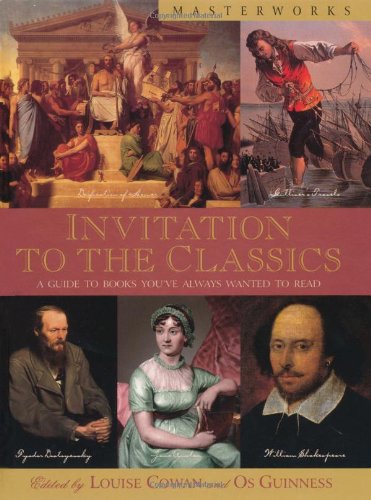In postmodern society, truth no longer exists in any objective or absolute sense. At best, truth is considered relative. At worst, it’s a matter of human convention. But, as Os Guinness points out in this book, truth is a vital requirement for freedom and a good life.
Time for Truth urges readers to seek the truth, speak the truth, and live the truth. Guinness shows that becoming free and truthful people is the deepest secret of integrity and the highest form of taking responsibility for ourselves and our lives. Now in paperback, this engaging book will interest Os Guinness fans, thoughtful readers, and those concerned with moral, political, and cultural issues.

The Case for Civility: And Why Our Future Depends on It
In a world torn apart by religious extremism on the one side and a strident secularism on the other, no question is more urgent than how we live with our deepest differences—especially our religious and ideological differences. The Case for Civility is a convincing and timely proposal for restoring civility in America.

Invitation to the Classics (Masterworks)
Invitation to the Classics (Masterworks) Baker Books
Guinness and Louise Cowan gather over 50 brief essays by a number of respected Christian literary scholars that extend invitations to readers to experience anew or for the first time the wonder and the beauty of selected classics.

Last Call for Liberty: How America’s Genius for Freedom Has Become Its Greatest Threat
The hour is critical. The American republic is suffering its gravest crisis since the Civil War.Conflicts, hostility, and incivility now threaten to tear the country apart. Competing visions have led to a dangerous moment of cultural self-destruction. This is no longer politics as usual, but an era of political warfare where our enemies are not foreign adversaries, but our fellow citizens.
Yet the roots of the crisis are deeper than many realize. Os Guinness argues that we face a fundamental crisis of freedom, as America’s genius for freedom has become her Achilles’ heel. Our society’s conflicts are rooted in two rival views of freedom, one embodied in “1776” and the ideals of the American Revolution, and the other in “1789” and the ideals of the French Revolution. Once again America has become a house divided, and Americans must make up their minds as to which freedom to follow. Will the constitutional republic be restored or replaced?
This grand treatment of history, civics, and ethics in the Jewish and Christian traditions represents Guinness’s definitive exploration of the prospects for human freedom today. He calls for a national conversation on the nature of freedom, and poses key questions for concerned citizens to consider as we face a critical chapter in the American story. He offers readers a checklist by which they can assess the character and consequences of the freedoms they are choosing.
In the tradition of Alexis de Tocqueville, Guinness provides a visitor’s careful observation of the American experiment. Discover here a stirring vision for faithful citizenship and renewed responsibility, not only for the nation but also for the watching world.
